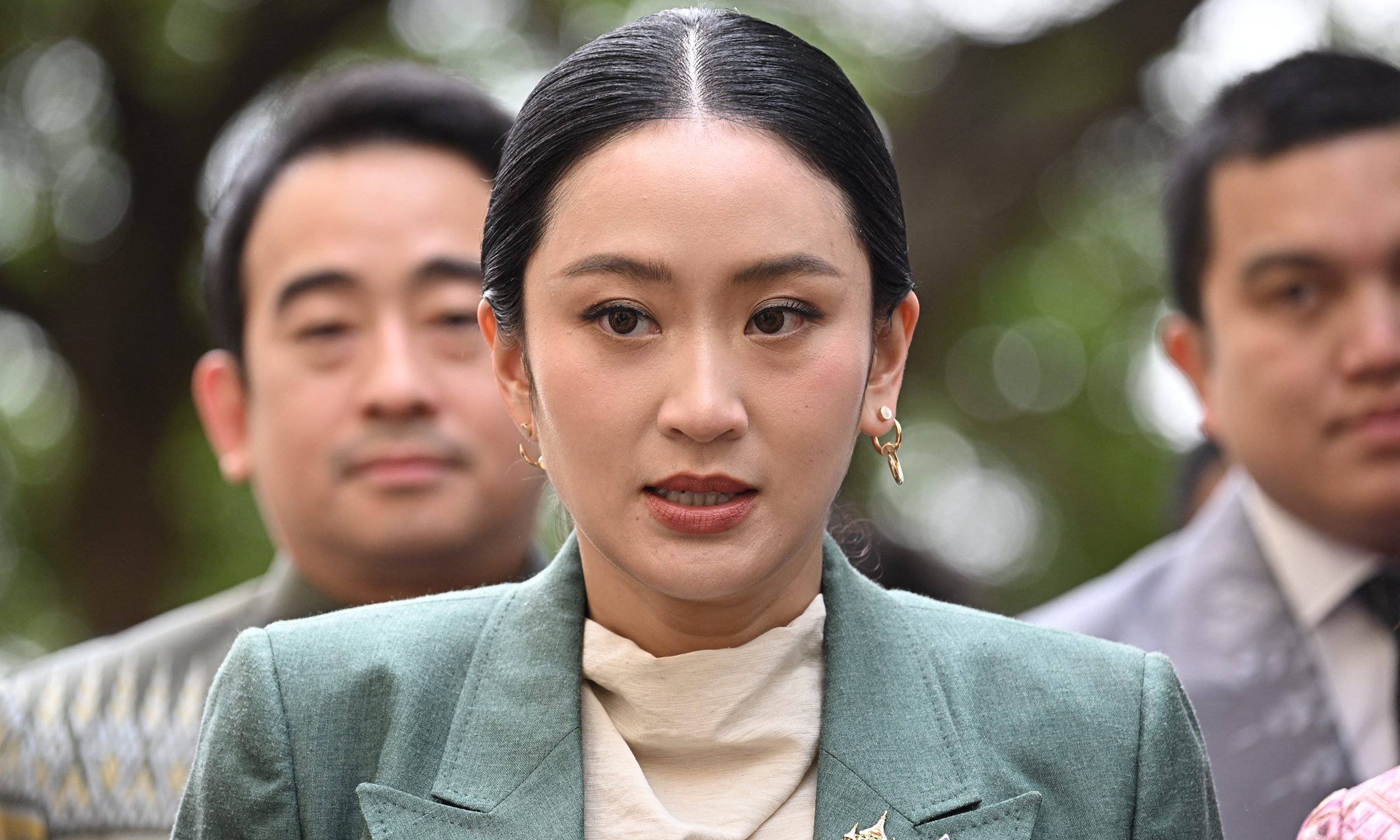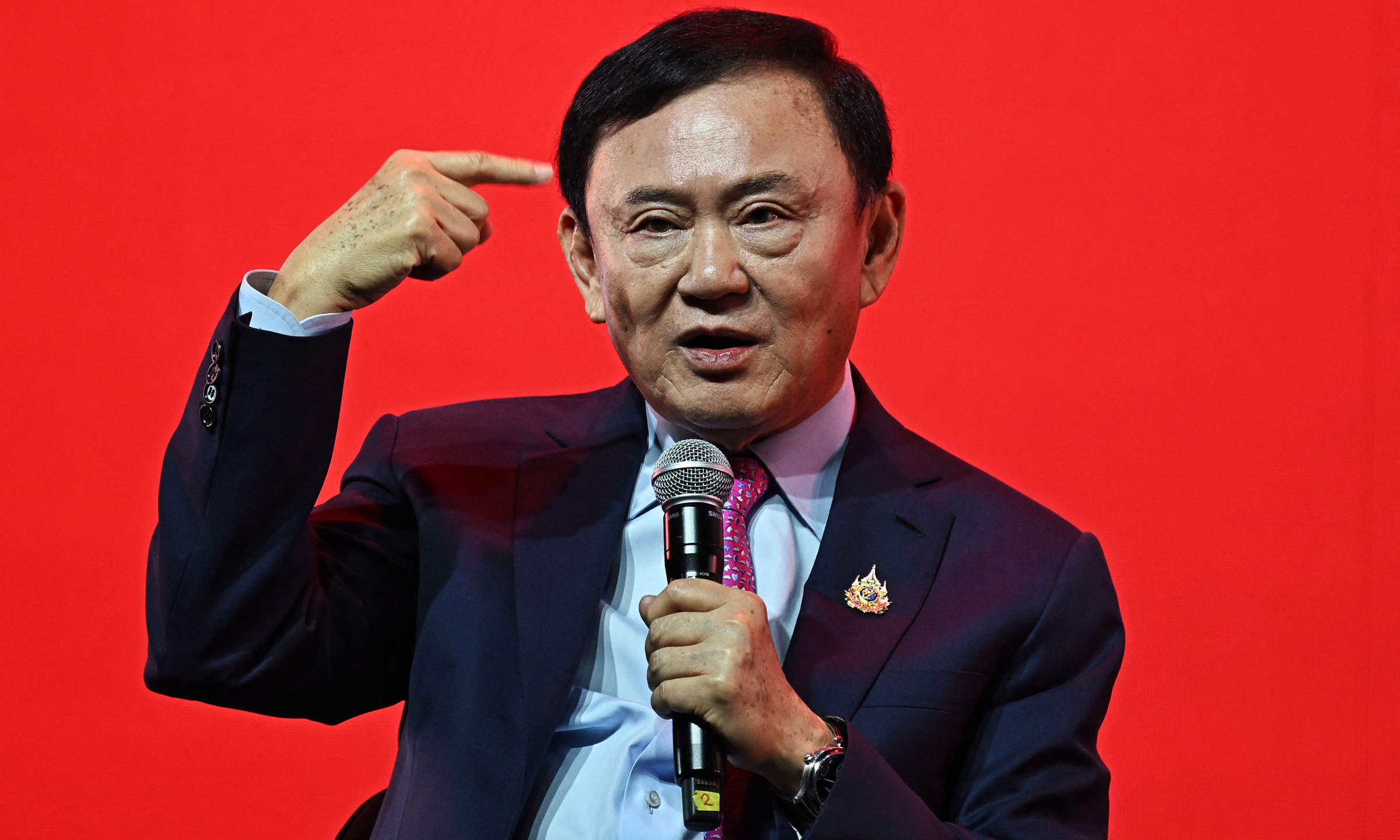Thailand's Constitutional Court removed Prime Minister Paetongtarn Shinawatra from office today for violating ethics rules during a call with Cambodian Senate President Hun Sen. She is the fifth Thai prime minister to be ousted by the Constitutional Court in 17 years.
Deputy Prime Minister Phumtham Wechayachai and the current cabinet will lead the country as a caretaker government until parliament elects a new prime minister at a time determined by the House Speaker. The Thai constitution does not specify when the House must convene for this purpose.
The court's decision will trigger negotiations between parties and influential politicians, centering around former Prime Minister Thaksin Shinawatra, Paetongtarn's father and founder of the Pheu Thai party. This process could be lengthy due to the various intertwined interests.
 |
Paetongtarn speaking in Bangkok, Thailand in July. Photo: AFP |
Paetongtarn speaking in Bangkok, Thailand in July. Photo: AFP
The situation is tense because the Pheu Thai-led ruling coalition holds a slim majority in the House of Representatives, with a 7-seat advantage. Any departure from the coalition would significantly impact the Pheu Thai party.
There are currently 5 eligible candidates for the prime ministership. They are on the list of individuals nominated by their parties before the 2023 election.
The Pheu Thai party initially had three nominees, but now only former Justice Minister and Attorney General Chaikasem Nitisiri remains. The 77-year-old Chaikasem, typically reserved, has expressed his readiness to take on the responsibility.
The second candidate is 58-year-old Anutin Charnvirakul, former deputy prime minister and interior minister. His Bhumjaithai party left the ruling coalition in June.
The three other eligible candidates are Energy Minister Pirapan Salirathavibhaga, former Deputy Prime Minister Jurin Laksanawisit, and former Prime Minister Prayuth Chan-ocha, who led the 2014 coup that ousted Yingluck Shinawatra's government. 71-year-old Prayuth has retired from politics and is now an advisor to the Thai royal family.
A prime ministerial candidate needs the support of at least 50 members of parliament to be included in the House vote. To become prime minister, a candidate needs a majority, more than 247 votes, out of the 492 House members.
If a candidate fails, the House will reconvene and repeat the process until a new prime minister is elected. There's no time limit on this process.
According to Reuters, Pheu Thai's chances of retaining the premiership largely depend on whether Thaksin can reach a compromise with the conservative faction within the government. This faction holds significant influence and could easily disrupt the former prime minister's plans.
The conservatives have clashed with Thaksin in the past, but some analysts suggest they might view a compromise with him as the best option at this time.
 |
Thaksin speaking in Bangkok, Thailand in July. Photo: AFP |
Thaksin speaking in Bangkok, Thailand in July. Photo: AFP
A weakened Thaksin could lead to early elections, creating an opportunity for the Move Forward Party. This progressive opposition party, advocating for institutional reform, poses a direct threat to the interests of the conservative faction and the Thai military.
Pheu Thai's candidate, Chaikasem, is considered the most likely successor. However, he would face challenges in implementing reforms or reviving the stagnant economy. Political instability could worsen, and the economic outlook might remain bleak for some time.
If the Bhumjaithai leader becomes prime minister, Anutin would need support from the coalition he left, as well as from the Move Forward Party, which holds the most seats in parliament.
Another scenario involves a compromise leading to Prayuth's return to power, but this would require cooperation with his longtime rival, the Pheu Thai party.
Pham Giang (According to Reuters)












